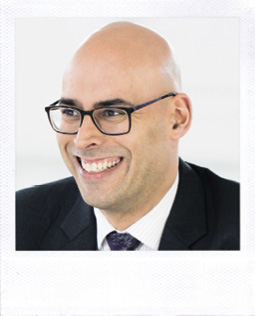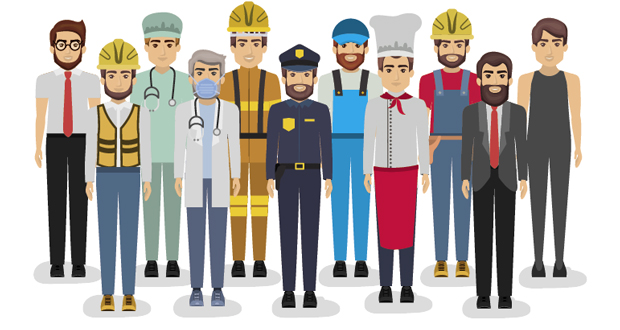
RAVI BHATNAGAR,
ACCOUNT DIRECTOR, ANABAS
The challenge for FM service providers during the COVID-19 outbreak is two-fold: to provide the right staffing levels to support clients while also ensuring those employees are safe and supported through this difficult period.
In some instances, this has meant working with organisations to close down sites, conduct deep cleans and then provide a basic security, cleaning and maintenance operation during closure. But many of our financial sector clients are deemed to be key workers and their buildings are operational. We’re supporting them with both specialist deep cleaning and more regular cleaning, while also delivering a range of other FM services during this challenging time.
Our main focus is looking after our people. With many public transport services running at reduced rates, getting our people to work, often at unsocial hours, is a challenge. We’re looking at all options, including how we would support staff to travel to site during a complete shutdown of public transport.
With many of our team working on the front line, we’re determined to ensure that they’re safe and feel supported. That’s an essential part of staff retention. Part of that is about ensuring that they have the right Personal Protective Equipment (PPE) to do their jobs safely, and that they know what the current Government guidelines are with regards to social distancing. We’ve also introduced new ways of working in some areas. Some of our security officers are taking on additional patrols and assisting with water hygiene testing as they are the only people in the building. In other instances, they’ve been dealing with post and ensuring things coming into the buildings are isolated and disinfected. Cleaning frequencies and areas of focus have changed. For example, hard surface cleaning has increased and vacuuming frequencies have reduced. We have also asked clients to return their own cutlery and mugs to kitchenettes rather than our people collecting them. We’ve also moved to daily video calls to update teams about the ever-changing situation.
Overall the Coronavirus outbreak has meant a reduction in demand for front-line facilities staff across the industry and Anabas, along with many other FM service partners, has taken advantage of the Government’s Coronavirus Job Retention Scheme to ensure we have the right staffing levels when the pandemic is over. The key is to ensure that those furloughed staff feel supported during the time that they’re not working, so they’re ready to rejoin the front line when they’re needed once again. The worst thing that could happen is for those people to leave the sector during this pandemic.
As part of our drive to ensure we have adequate staffing levels when the crisis is over, we’ve set up an Employee Assistance Programme which provides a confidential 24/7 helpline providing advice and support on legal, financial, medical and other personal issues for staff who may be struggling in such times of uncertainty. Anabas’ staff and their families can also have individual counselling sessions by telephone. We’ve also introduced a Friday social video call where staff and their families can catch up, ‘see’ each other and feel part of the organisation.
Before this crisis began, we were already in regular dialogue with our front-line teams about the impact on them of the new post-Brexit immigration system. The Coronavirus outbreak, while obviously a crisis for our sector, has allowed us to deepen those conversations and look for new ways to support our people in the long term.

MIKE BULLOCK,
CEO OF CORPS SECURITY
The Government’s decision to classify licence-holding security professionals as critical workers has had a positive impact on the security sector. It’s allowed us to continue to support our operational clients during this extremely challenging time and to help those who are closing down their buildings to do safely and securely.
Some of our customers are part of the national infrastructure – utilities, logistics and financial services firms – and are still operating. One is delivering essential products, such as oxygen, to the NHS, while others are involved in the transport of vital medicines and food to retail outlets and people in lockdown. These operations often need an increased security presence because they’re operating over and above their usual capabilities.
Where customers are closing down their buildings, some still need a skeleton security team in place to support critical assets which have been mothballed. Our museum clients and major performing arts venue clients are good examples of this. Elsewhere, reception staff have been furloughed in some instances and our security officers are now required to provide day cover to maintain a presence in a largely empty building, whereas before it was mainly nights and weekends. Our co-working space clients are an example of this approach. Others are choosing to use our mobile patrols to replace on-site security officers, while other customers are turning to technology to temporarily replace manned guards. Security is not something that these organisations can do without during this uncertain time.
The challenge for every organisation is managing staff resources. Some of our officers are unwell, or self-isolating because a member of their family has the virus. Fortunately, the reduction in available staff is balanced out by a reduction in security needs across the board. But it’s a tricky balancing act to make sure we have the right resources for our client needs.
I believe that the perception of security and other front-line roles has changed fundamentally as a result of this pandemic. They were previously often considered by individuals and organisations to be low-skilled and low-value positions. That’s changing. Now people are recognising the value of those who are in the front line fighting this pandemic and keeping us safe. It’s not just medical staff who are combating the Coronavirus. From security guards and cleaning operatives to bin men and street cleaners, there are a whole army of people who are working during this outbreak to keep us safe and secure.
Once this is all over, I predict that individuals and organisations will have more respect for people in these roles. Security professionals will become more skilled and highly-trained and while technology will have an ever-increasing role to play in keeping the built environment secure, the reputation of the maned guard will be enhanced.





